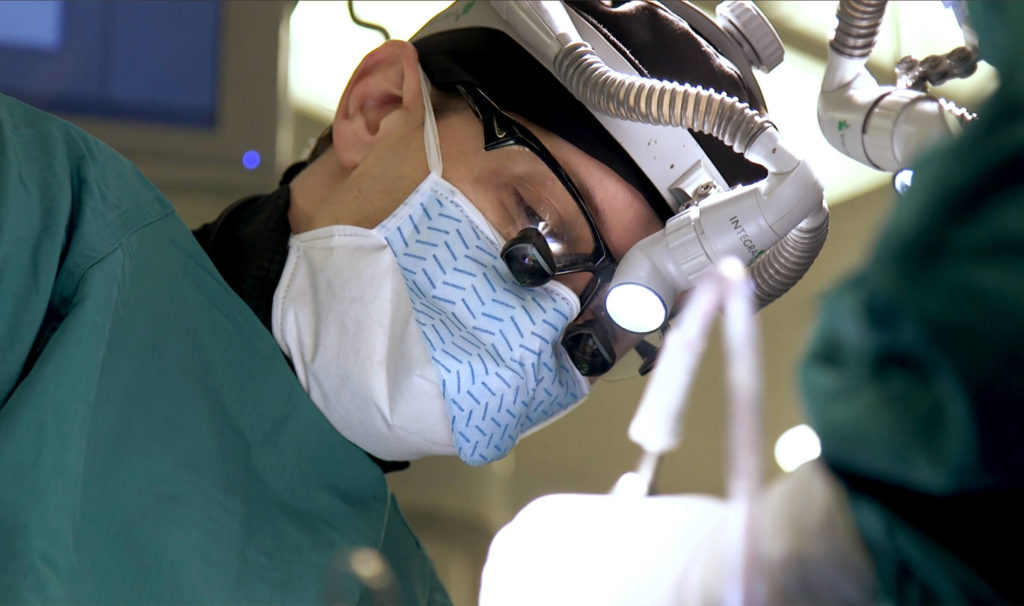Patient Advocacy & Outcomes
Real Stories From Real Patients

Spinal Surgery Saves Virginia Man from Paralysis
September 02, 2014
A fall from a tree almost paralyzed Charlie Bennett. Duke neurosurgery specialists realigned his spine, which was severely compressed by fractured vertebrae. Now recuperating and going through rehab, Bennett says, “others say how blessed I am. I already know.”
Charlie Bennett had been pruning his aunt’s apple tree for 20 years. The 67-year-old retired mechanic from Danville, VA, didn’t think twice about climbing out on a limb nine feet off the ground.
But this time, something went wrong. Bennett slipped and fell out of the tree and onto his back. He was shaken up, but he could still move. So he got up and carried his tools and ladders hundreds of yards back to the house. Then he got in his truck and drove himself home.
“I was in pain, so I took some medicine and went to bed, but it didn’t help,” says Bennett. “A few days later, I went to the urgent care doctor, but he didn’t find anything.”
For six weeks, Bennett continued doing as much as he could despite the pain. He mowed his lawn and helped his neighbors with their gardens. But when he awoke with numbness in his hands, his daughter made him go to a nearby hospital.
“I was in bad shape,” says Bennett. “When they did the X-ray at the hospital, they found I had a broken neck.”
Due to the complexity of his injury, Bennett was told he should be seen by neurosurgeons at a hospital like Duke, so he made the two-hour drive to Durham. “The team and I met Mr. Bennett in the emergency room,” says Duke neurosurgeon Oren Gottfried, MD. “I couldn’t believe he was still moving. Most with this type of injury get help immediately after the fall, and not many can move their arms or legs.”
Bennett’s fall had resulted in the complete dislocation of the sixth and seventh vertebrae, resulting in severe compression of the spinal cord. According to Dr. Gottfried, half of patients with just a 50 percent “slip” or dislocation of this kind are paralyzed. “We were dealing with one millimeter – one more and he would’ve been paralyzed,” says Dr. Gottfried. “I knew we had to get him back in alignment as quickly as we could.”
Bennett was transported to surgery, where it took Dr. Gottfried and two assistant surgeons three hours and two procedures to realign his spine and secure it in place. “We knew if we didn’t pull the right way, we could paralyze him,” says Dr. Gottfried. “But at the end of the day, we achieved perfect alignment.”
Bennett has a lengthy recovery ahead that involves regular physical therapy, however he realizes the outcome could have been much worse. “I still have numbness in my hands and feet, and I walk with a cane,” he says. “It’s a challenge, but I feel fortunate. Others say how blessed I am, and I already know.”
Dr. Gottfried says Bennett should achieve improved range of motion as time goes on. “Soon he can get back to doing the activities he did beforehand,” he says. “But no tree climbing!”
Connect With Dr. Gottfried!

A good mentor unlocks your potential to do more.
-Dr. Oren Gottfried





